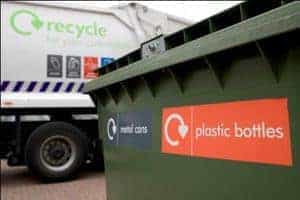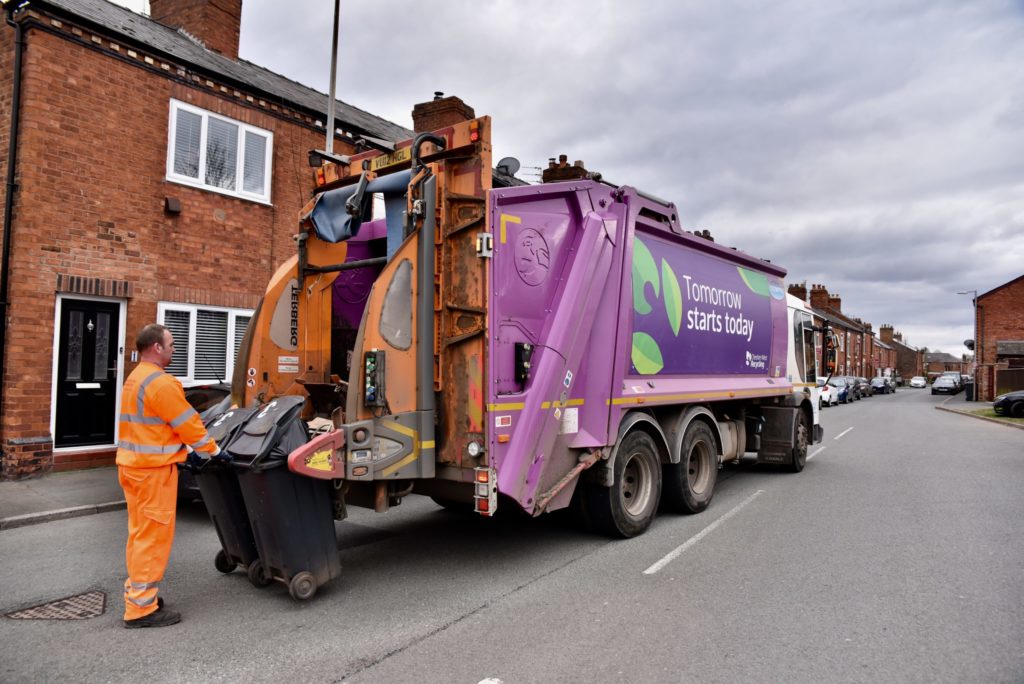When Chancellor George Osborne announces the results of the Spending Review on October 20, setting out the coalition government's spending plans for 2011/12 to 2014/15, it's not just the public bodies involved in waste and recycling who will be waiting with baited breath to see what he has to say.
Everyone knows that cuts are coming, as the government looks to reduce the UK's growing budget deficit by reining in public spending, but question marks remain over the extent of the cuts, and exactly what they will mean for the delivery of key frontline services such as waste and recycling, and how it affect the waste sector as a whole.
Meanwhile, councils have said they expect to have to make cuts of as much as 40% as a result of a reduction in their Whitehall funding.
But, waste management companies will not be immune, with those running council contracts having to work with their local authority partners to work out how they can help them to achieve those cost-savings without damaging the quality of service they offer.
There are also major question marks over the future of funding mechanisms that could potentially encourage the development of new waste infrastructure – including PFI and renewable energy subsidies, such as the Feed-in Tariff and the proposed Renewable Heat Incentive.
And, with the Spending Review taking place at the same time as a review of all England's existing waste policy, questions are already being asked about whether the processes are compatible, in particular in relation to achieving increased collection frequency alongside cutting costs.
WRAP
Environment secretary Caroline Spelman has already confirmed that further cuts to the number of quangos run by Defra will be made in the autumn (see letsrecycle.com story) and more than 50 bodies run by the department face abolition according to a Cabinet Office list leaked last week (see letsrecycle.com story).
WRAP claimed that its absence from the list of bodies under review was due to its status as an independent body. However, its reliance on government funding would appear to make cuts to its budget inevitable.
And, the body has acknowledged budgetary constraints will mean that its next business plan, covering the period 2011 to 2014, will see it focus on fewer priorities and aim to encourage more partnership working (see letsrecycle.com story).
Meanwhile, Defra has already come under pressure from MPs to change how WRAP is run to make it easier for it to encourage private sector money to support its work in place of public sector funding (see letsrecycle.com story).
WRAP is likely to reduce the number of websites it runs and cut programmes where it feels it has made enough of a difference and its withdrawal would cause little harm.
Environment Agency
As the chief regulator for environmental issues, including waste and recycling, in England and Wales, it is thought unlikely that the Environment Agency will be abolished under the Spending Review – despite it appearing on the leaked list of bodies under review.
However, efforts to cut costs at the Agency have already resulted in a consultation being launched on the consolidation of two of the regulator's eight regions to create a ‘South East Region' (see letsrecycle.com story).
And, a potential merger with Natural England has also been mooted by some MPs, prompting the government to confirm that it has already held discussions with both bodies as part of its “quest for savings”.
Other quangos
Defra's need to cut its spending has also impacted on the London Waste and Recycling Board, which earlier this month revealed that the department had reduced its funding for the three years to 2010/11 by £11.1 million, from £60 million to £48.9 million (see letsrecycle.com story).
Given that this cut was agreed before the Spending Review is announced, the Board – which aims to drive waste infrastructure development in the capital – could see its next funding allocation from the department squeezed even further when it is revealed as part of the Spending Review announcement.
Elsewhere, the Defra-funded Advisory Committee on Packaging, which brings together figures from across the packaging supply chain to advise the department on packaging policy, was named on the leak list of bodies facing the chop, and it is thought its functions will be absorbed into Defra.
The Infrastructure Planning Commission, which had been set up by the previous Labour government to oversee major planning decisions such as large-scale incinerators, is also earmarked for abolition (see letsrecycle.com story), and local government spending watchdog Audit Commission is also set to be axed (see letsrecycle.com story).
Together these show that the austere public spending environment is set to impact on areas as diverse as local authority delivery of waste services and the planning processes waste companies must negotiate to get new facilities built.
PFI
Much of the new waste treatment infrastructure currently earmarked for development by councils over the next four to five years had received funding under government's private finance initiative (PFI) approach, but no new funding has been made available for new projects since March 2010.
When he was Shadow Chancellor, George Osborne expressed his concern over how the PFI system worked and vowed to introduce new ways to leverage private investment in large scale infrastructure, such as waste facilities.
However, no details have been revealed of any proposed alternative to PFI, and, in light of the uncertainty over future rounds of PFI and the delays councils have had in finalising their PFI deals due to financing issues, local authorities including Lincolnshire county council (see letsrecycle.com story) and Peterborough city council (see letsrecycle.com story) are looking at alternative options, such as prudential borrowing.
LATS
An uncertain future also faces the landfill allowance trading scheme, LATS, which was established to help encourage councils to divert more waste from landfill in order to meet European landfill diversion goals.
The government has already cast doubt over the system's future (see letsrecycle.com story), with many in the sector believing landfill tax has overtaken LATS as the main driver encouraging councils to recycle more and landfill less and claiming the system could be scrapped as part of the spending review.
Renewables incentives
The potential to recover energy from waste – in particular using anaerobic digestion – could also be affected by the potential scrapping of plans to introduce a subsidy for renewable heat generation, the Renewable Heat Incentive.
While the scheme is scheduled to be introduced in April 2011, industry bodies have been lobbying the department for energy and climate change due to fears that the plans may be either scaled back or scraped completely as a result of the Spending Review.
And, they have also raised concerns over whether the subsidy available for small-scale renewable electricity projects, the Feed-in Tariff, could be reduced for certain technologies.
Local authorities
However, with expected cuts of up to 40% in the amount of money they receive from central government under the Spending Review, further efficiencies will need to be found, either by reducing costs or increasing revenues from other sources, such as running trade waste services.
It is understood that some councils could introduce their budgets for next year in January 2011 instead of April 2011, in a move to bring in new ways of delivering services with less funding as soon as possible.
Waste companies
And, with waste companies now responsible for delivering the majority of council collection and disposal contracts, unions have warned that they could face industrial strife as they look to cut costs without damaging service delivery.
Earlier this month, Veolia faced the threat of industrial action after the GMB union claimed it was looking to cut pay and jobs from its workers employed on council contracts (see letsrecycle.com story).
And, the union has claimed that this could mark the start of a trend as councils find themselves squeezed between having to cut costs and being encouraged by the government to increase the frequency of their collections (see letsrecycle.com story).














Subscribe for free